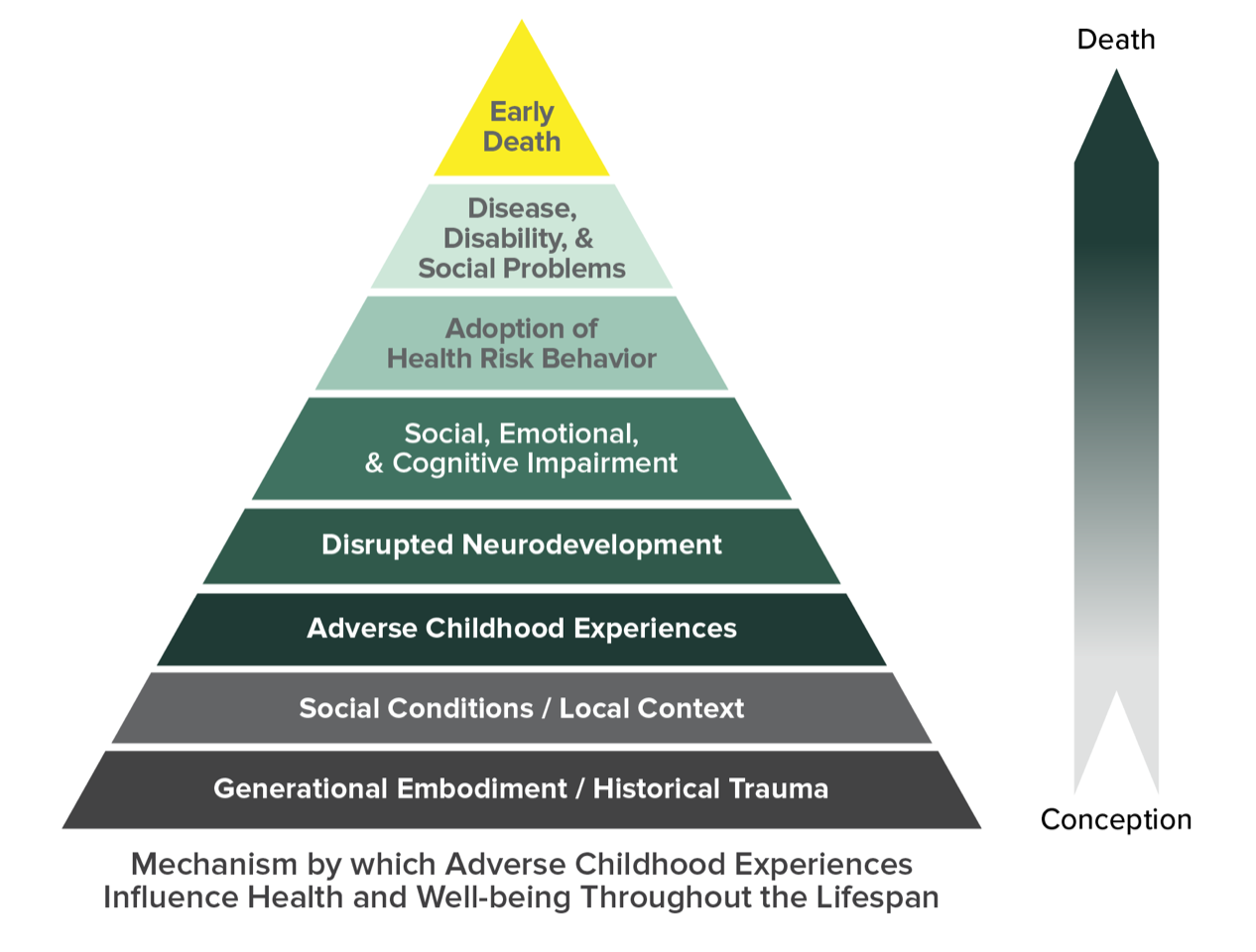Resources
Family Ties

Family Ties is a candid conversation with 6 fathers incarcerated in the Allegheny County Jail as they reflect on their love for their children and how their behaviors have impacted their most cherished relationships. Family Ties also permits a glimpse of a father home with his mother and five year old son after six months in Jail. His successful return home is filled with hopes, dreams, and anxieties for everyone.
The Warden of the Allegheny County Jail, drawing on his 28 years in corrections, also describes the negative consequences for public safety if family relationships are not strengthened when people are in Jail and after they are released.
Our Motivation

The Adverse Childhood Experiences Study (ACE Study) is a research study conducted by Kaiser Permanente health maintenance organization and the Centers for Disease Control and Prevention (CDC).[1] Participants were recruited to the study between 1995 and 1997 and have been in long-term follow-up for health outcomes. The study has demonstrated an association between adverse childhood experiences (ACEs) and health and social problems in adulthood.
10 types of childhood trauma have been identified as:
- Physical abuse
- Sexual abuse
- Emotional abuse
- Physical neglect
- Emotional neglect
- Mother treated violently
- Household substance abuse
- Household mental illness
- Parental separation or divorce
- Incarcerated household member
Recently, experiencing homelessness was added to the list of ACES experiences.
The study found the following:
- Adverse childhood experiences are common.
- Adverse childhood experiences often occur together. Almost 40% of the original sample reported two or more ACEs and 12.5% experienced four or more.
- Adverse childhood experiences have a dose–response relationship with many health problems. As researchers followed participants over time, they discovered that a person’s cumulative ACEs score has a strong, graded relationship to numerous health, social, and behavioral problems throughout their lifespan, including substance use disorders. Furthermore, many problems related to ACEs tend to be comorbid (the simultaneous presence of two chronic conditions or diseases), or co-occurring.[7]
The ACE study’s results suggest that maltreatment and household dysfunction in childhood contribute to health problems decades later. These include chronic diseases—such as heart disease, cancer, stroke, and diabetes—that are the most common causes of death and disability in the United States.[10]
- As knowledge about the prevalence and consequences of adverse childhood experiences increases, trauma-informed and resilience-building practices based on the research is being implemented in communities, education, public health departments, social services, faith-based organizations and criminal justice. A few states are considering legislation.
A significant number of young children who are homeless have experienced multiple adverse childhood experiences (ACEs) prior to being identified as homeless[i]
The early childhood and public health literature indicate that these ACEs significantly impact child development when it occurs without a caring, supportive adult relationship.[ii]
Parents in families who are homeless often experience depression (40+%) and PTSD (80%) [iii] This often interferes with their role as a parent.
The following reported challenges for young children who have been homeless are derived from the SHIFT report and the Pediatric Work Group for Health Care for the Homeless
- They are 4 times as likely to experience developmental delays
- Over 75% of those under five years of age have at least one major delay
- Over 44% have two delays
- Over 38% exhibit emotional and/or behavioral problems (short attention span, sleep disorder, withdrawal, aggression, inappropriate interaction with adults).
- At least 25% repeat a grade
- 30% are enrolled in special education.
- Greater than 30% of the children have involvement with child protective services after they have been served by a homeless housing program[iv].
The Pittsburgh Child Guidance Foundation seeks to work with organizations that are addressing issues related to Adverse Childhood Experience and childhood trauma with the goal of improving the futures and outcomes of these at-risk youth.
[i] Unpublished report of young children in Allegheny County HUD and HAP funded homeless housing. In a convenience sample of 30 young children, parents volunteered that 70% of the children had experienced 3 or more ACE, and 53% had experienced 4 or more. Public health literature finds 3 or 4 ACE as correlated with negative lifetime health, behavioral health and/or social outcomes. Funded by The Heinz Endowments grant to Education Law Center and University of Pittsburgh Office of Child Development.
[ii] From the American Academy of Pediatrics, The Lifelong Effects of Early Childhood Adversity and Toxic Stress http://pediatrics.aappublications.org/content/early/2011/12/21/peds.2011-2663.abstract
[iii] Data reported are from the March 2013 American Institutes of Research Service and Housing Interventions for Families in Transition (SHIFT).
[iv] Mitigating Homeless Children’s Risks for Developmental Delays http://www.nhchc.org/wp-content/uploads/2011/10/Apr09HealingHands.pdf